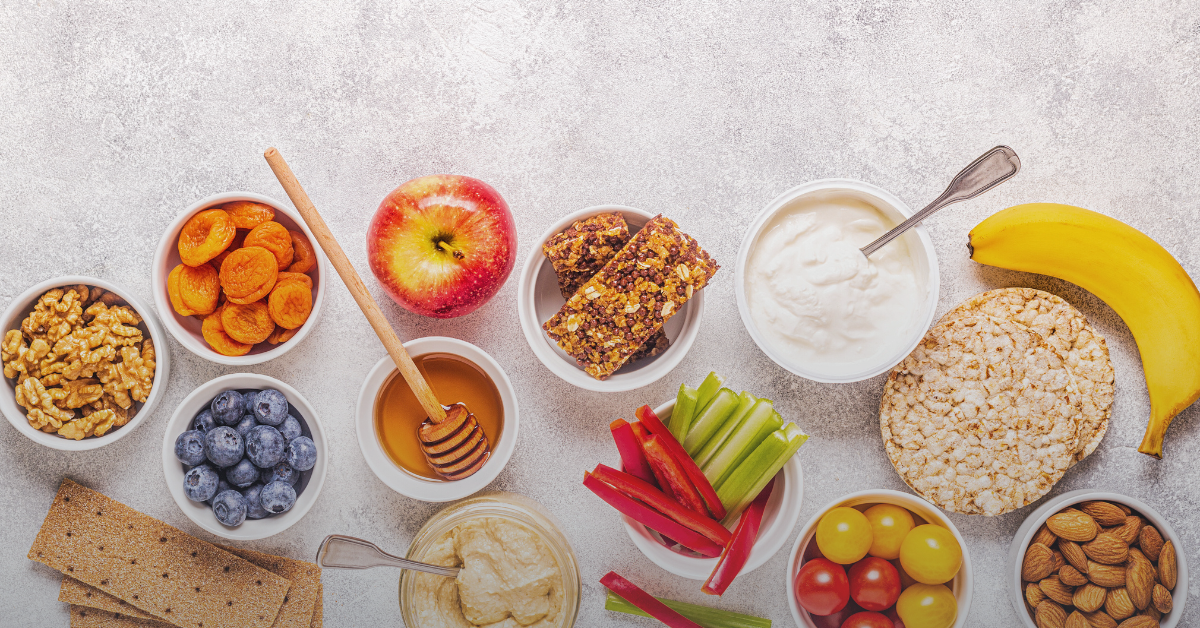1. Almonds
Calcium is crucial for building strong bones, and almonds are rich in it! Calcium is essential in maintaining a strong tooth enamel, while preventing damage, sensitivity and decay. Almonds are also low in sugar, which is a bonus in preventing unwanted harm. Crunchy foods like almonds are often recommended as a natural way to scrape stubborn plaque off teeth. Additionally, the protein in these nuts supports healthy gum tissue. If your patients want to stay cavity-free, almonds are a great snack to endorse!
2. Dairy Products
Everyone knows that milk is a rich source of calcium, which helps ward off tooth decay. Milk has a neutral pH that helps neutralize acidic or sugary foods and drinks. When teeth are exposed to acid, they can lose their calcium and phosphorus, but drinking milk can help replenish these minerals. The proteins in milk create a film-like barrier on the teeth that intercepts potential harm. Other dairy products can also have a similar impact on your oral health, such as cheeses and yogurts.
3. Apples
Apples stimulate saliva production in the mouth, which helps to wash away stubborn bacteria and food particles that stick around. They are packed with antioxidants that neutralize bacteria and ward off future cavities and gum disease. Vitamin C in apples prevents gum inflammation, infections and bleeding. Their Potassium strengthens teeth and other bones.
A variety of fruits in general can have a positive impact on one’s oral health, but it is important to distinguish between the good and the adverse. Pears, like apples, have a high-water content and most of the same benefits. Strawberries can serve as a natural teeth whitener due to their malic acid content and bleaching capabilities. Grapes, cherries and plums are also a reliable source of water and an abundance of other nutrients.
When it comes to fruit, it is important to watch out for overdoing anything too sugary or acidic. Lemons, grapefruits and other citruses can erode at your teeth and should be enjoyed in moderation and paired with other foods.
4. Whole Grains
Whole grain foods are rich in nutrients like magnesium, which helps to build up strong teeth and enamel. Vitamin E, B vitamins and iron found in whole grains reduce inflammation, lessen the risk of gum disease and help to keep the mouth healthy. Their antioxidants contribute to overall oral health as well.
On top of that, whole grains contribute to regulating your blood sugar, which can reduce the risk of gum disease in patients. The fiber in whole grains aids digestion, while complex carbohydrates make it harder for harmful bacteria to thrive. It is important to try and choose the whole grain option over any refined grains when given the chance. Refined grains have been stripped of their nutrients and can lead to several health concerns. Some great sources of whole grains include brown rice, oatmeal, quinoa, corn and whole wheat bread and pastas.
5. Tofu
Tofu is a strong source of calcium and phosphorus, two of the best nutrients for your oral health. Especially when fortified, tofu is abundant in calcium, which is great for building and maintaining a strong tooth structure. When combined, phosphorus works alongside calcium to strengthen tooth enamel. Likewise, tofu is a high source of protein which benefits overall oral health as well.
Bonus: Tofu is also cheap and really easy to cook! Encourage your patients to try something new for their teeth today!
6. Tea
Looking for a coffee substitute to give the seal of approval? Tea contains fluoride, which helps to strengthen tooth enamel and prevent cavities. Both black and green teas naturally carry fluoride. Equally as important, teas contain polyphenols and antioxidants that reduce gum inflammation and fight bacteria in the mouth, potentially lowering the risk of future gum disease.
7. Seafood
Seafood is rich in nutrients like vitamin D, omega-3 fatty acids and calcium, which strengthen teeth, gums and reduce the risk of cavities and gum disease. Incorporating seafood into your diet helps to re-mineralize weak enamel, making your teeth more resistant to acid attacks and decay.
Out of the box seafood benefits include its low sugar content, its softness and easiness to chew, and its ability to promote saliva production.
8. Leafy Vegetables
Leafy greens like spinach, kale and collard greens are packed with nutrients that strengthen enamel and reduce bacteria. They also contain folic acid, a member of the vitamin B family, which supports overall oral health. Calcium, magnesium and phosphorus can all be found in these vegetables as well. When xylitol, antioxidants and anthocyanins are present, your mouth is shielded from dangerous bacteria and pathogens that could up.
The high fiber content of leafy greens and chewing activity when consuming them also contribute to saliva production, rinsing away any bacteria and leftover debris. Some leafy greens that are good for your teeth include: spinach, kale, collard greens, lettuce, chard and arugula.
9. Dark Chocolate
Dark chocolate, especially varieties with 70% or higher cocoa content, is known to be helpful with tooth decay, plaque and bad breath. It contains antioxidants, polyphenols, flavonoids and tannins, which all contribute to better dental health. Antioxidants help to fight periodontal disease, stop bacteria from turning sugar and starches into acids that damage teeth and can even form an antibacterial compound in your mouth. Polyphenols limit oral bacteria, neutralize microorganisms that cause bad breath and also prevent bacteria from turning sugar and starches into acid. Flavonoids and epicatechin help to slow tooth decay, while tannins, the ingredient that makes dark chocolate bitter, can prevent bacteria from sticking to teeth.
In a general sense, cocoa butter creates a protective coating around teeth that makes it more difficult for plaque to stick to them. Dark chocolate can be part of a healthy diet for your teeth, but it of course should never replace brushing, flossing and other best practices.
10. Garlic
Garlic contains allicin, a compound with strong antibacterial properties that helps fight harmful bacteria in the mouth, potentially preventing tooth decay, gum disease and plaque buildup. This compound performs as a natural defense against oral infections due to its excellent antifungal and antiviral properties. Chewing raw garlic activates the allicin, allowing it to kill bacteria that contributes to dental issues like gingivitis and cavities.
Garlic also has anti-inflammatory properties that can help reduce gum inflammation and discomfort. More off the wall, some people even use raw garlic as a natural remedy for toothaches by applying it directly to an affected area.
The Bottom Line: A diet rich in calcium, antioxidants and anti-inflammatory nutrients supports strong teeth and gums, while helping to prevent tooth decay and gum disease. Including a variety of these foods in your diet can contribute to better oral health when combined with proper dental hygiene.

